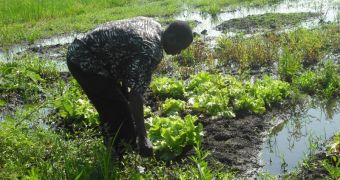At times when poverty leads to unsustainable agricultural practices, the Center for Rural Empowerment and the Environment (CREE) has scaled up efforts to introduce a new green toilet concept, seeking to reduce habitat destruction and annihilate the ever growing conflicts between people and vulnerable hippos in Kenya.
The ecologically sanitary dry toilets installed in Dunga Wetlands on Lake Victoria require no water; therefore, they are considered a great asset in preserving this scarce resource, Mongabay informs.
Moreover, the innovative line of toilets collects human waste and mixes it with ash, providing a great source of eco-friendly fertilizer for financially challenged farmers.
Since the green product used widely to grow crops is boosting the profitability of agricultural practices, workers are no longer forced to destroy significant surfaces of wildlife habitat to obtain more land for their future harvests.
Nowadays, when poverty is still one of the most important issues in developing countries, people are often disrupting the balance of hippos and other large animals that damage their crops looking for food.
Apart from the fact that it protects hippos, birds and other endangered creatures considering the Dunga Wetlands their natural home, the eco fertilizer coming from dry toilets is used on a large scale by farmers to obtain better crops.
Members of local communities have immediately adopted the strategy and have exploited this opportunity to double or even triple the production of healthy vegetables.
The solution proposed and introduced by CEE is easy to follow and does not require a considerable financial investment.
"[...]Our solutions to development come from respected leaders within the community itself, and thus have good support from the community because its not an idea imposed from the outside. The result is success, often with few financial resources, because it is an idea the community genuinely believes is best for them," explained a local farmer for Mongabay.

 14 DAY TRIAL //
14 DAY TRIAL //